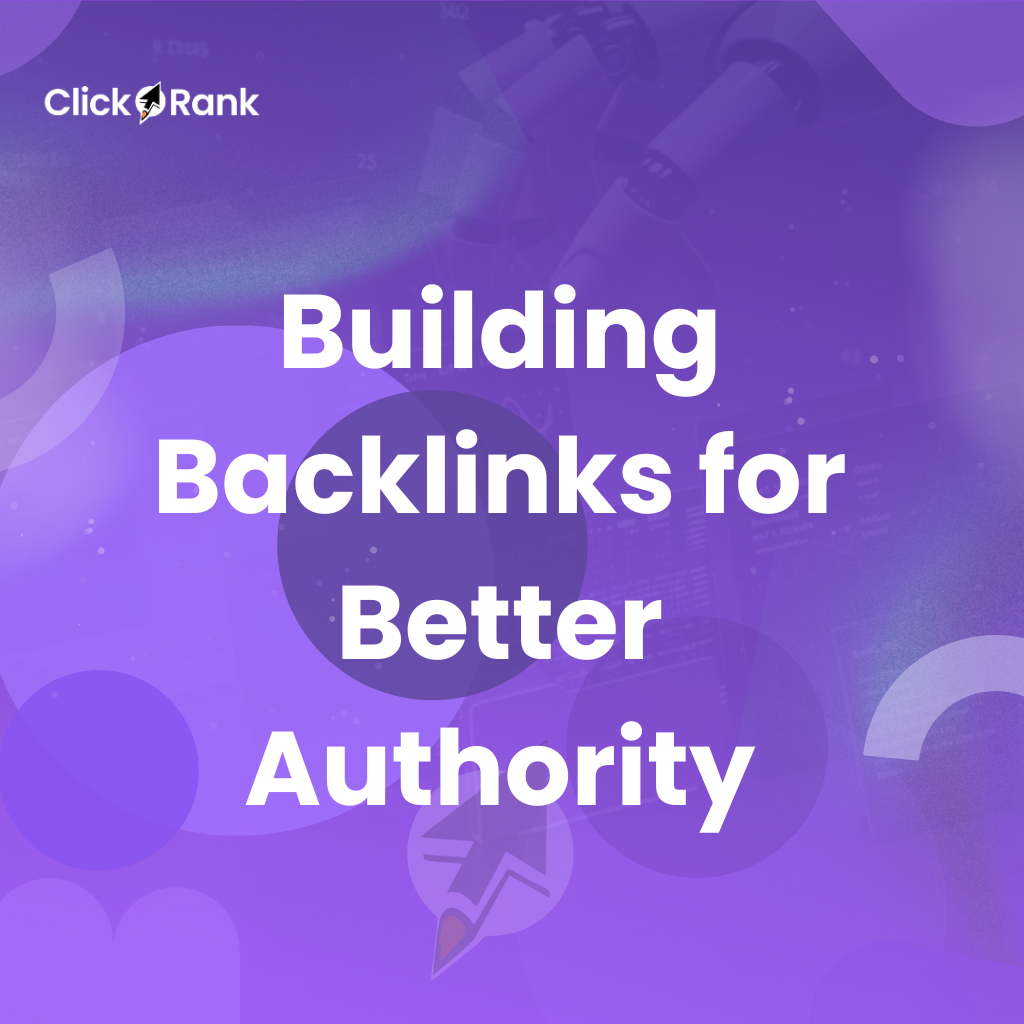SEO for Therapists: Boost Your Online Presence and Attract Clients
As a therapist, it’s important to have a strong online presence. By optimizing your website with SEO, you can reach more potential clients and grow your practice efficiently.
Why SEO Matters for Therapists
How SEO can help you attract more clients and build your practice Main Section Description: Search engine optimization (SEO) plays a critical role in increasing your online visibility. If patients can’t find you on Google, they’ll go elsewhere. Here’s why SEO is so important for therapists.
Understanding SEO for Therapists
SEO helps your website appear higher in search results when people search for therapy services. This can lead to more calls and appointments from people actively looking for help.
The Benefits of SEO for Your Practice
With proper SEO, you can target specific groups like individuals searching for counseling, therapy for anxiety, or couples therapy. This ensures you're reaching people who need your services.
Building Trust and Authority
A well-optimized website not only helps you show up on search engines but also builds credibility. People are more likely to trust a therapist they find online, especially if your website offers valuable information.
SEO isn’t just about showing up online it’s about reaching the right people. By optimizing your website, you can grow your practice and build trust with potential clients.
Optimizing Your Website for Search Engines
An optimized website helps search engines understand what your practice offers, making it easier for potential clients to find you. Let’s explore the basics of website optimization.
Content Optimization
Creating quality, relevant content is essential for SEO. Writing blog posts, FAQs, or even sharing helpful resources on your site can increase your rankings and help potential clients understand your expertise.
Improving Website Structure
A clean, easy-to-navigate website structure helps both users and search engines. Make sure your pages are well-organized, fast-loading, and mobile-friendly to improve user experience.
Technical SEO for Therapists
Technical SEO ensures that search engines can crawl and index your website properly. This includes fixing broken links, optimizing images, and using proper headers for each page.
Optimizing your website isn’t just about adding keywords; it’s about creating a seamless experience for both users and search engines. These steps will help you get noticed online and attract new clients.
Keyword Research for Your Therapy Practice
Keyword research is essential to making sure you’re targeting the right search terms. By choosing the right keywords, you can ensure your website shows up when potential clients search for your services.
Identifying Common Search Terms
Start by identifying the most common search terms potential clients may use to find your services. These could include terms like "online therapy," "family counseling," or "therapy for depression."
Using Local Keywords
Local SEO is important for attracting clients in your area. Make sure to use location-specific keywords like "therapy in [city]" or "mental health services near me" to reach clients nearby.
Long-Tail Keywords for Therapy
Long-tail keywords are longer, more specific phrases like "affordable anxiety therapy in [city]." These can help you target people looking for very specific services, making it easier to stand out.
Effective keyword research ensures you’re targeting the right audience. By using relevant keywords, you can improve your website’s visibility and attract the right clients to your practice.
Local SEO for Therapists
Local SEO is crucial for therapists since most clients look for services near their location. Let’s dive into strategies to improve your practice’s local SEO.
Google My Business Optimization
Claim and optimize your Google My Business profile. This is crucial for local SEO as it helps you show up in local search results and Google Maps, making it easier for clients to find you.
Encouraging Reviews
Client reviews are an important factor in local SEO. Encourage satisfied clients to leave reviews on Google, Yelp, or other platforms. Positive reviews help you stand out and build trust with new clients.
Local Citations and Directories
Listing your therapy practice in local directories and citation websites can improve your local rankings. These citations act as an online reference for your practice, boosting your credibility.
Local SEO helps you attract clients who are nearby and actively searching for therapy services. By focusing on local strategies, you can improve your practice’s online presence and reach the right audience.
Content Creation for Your Therapy Website
Content is one of the most effective ways to improve SEO. By creating helpful and informative content, you can not only attract clients but also establish your authority as a trusted therapist.
Writing Blog Posts
Blogging is a great way to provide value to potential clients while improving your SEO. Share tips, advice, or personal stories about therapy to connect with your audience.
FAQ Pages and Answering Client Questions
Create a FAQ page that answers common questions about therapy. Not only does this provide helpful information, but it also improves your search rankings by targeting specific questions people may search for.
Videos and Testimonials
Including video content and testimonials on your website can help build trust with potential clients. Videos can also improve user engagement, which search engines reward.
Content marketing is a powerful tool for both SEO and client engagement. By creating valuable content, you build your reputation and increase your chances of being found by potential clients.
Tracking and Measuring SEO Success
Once you’ve implemented SEO strategies, it’s important to track your performance to see what’s working. By measuring your results, you can refine your strategy and improve your online visibility.
Using Google Analytics
Google Analytics helps you track website traffic, user behavior, and conversion rates. This data is essential for understanding how people interact with your website and where improvements are needed.
Monitoring Keyword Rankings
Use tools like Google Search Console to track how well your keywords are performing. By monitoring your rankings, you can adjust your SEO strategy to improve visibility.
Evaluating User Engagement
Look at metrics like time on page and bounce rate to assess how engaging your website is. Higher engagement often leads to better search rankings, so aim to keep visitors on your site longer.
Tracking your SEO performance helps you stay on top of your goals. By using analytics and monitoring your keywords, you can adjust your strategy and continue improving your practice’s online presence.
Continuous SEO Improvement
SEO is a long-term strategy that requires constant updates and improvements. Here’s how you can continue optimizing your website to stay ahead of the competition.
Regular Content Updates
Keep your content fresh and relevant by updating old blog posts and adding new articles. This signals to search engines that your website is active and valuable to users.
Staying Updated with SEO Trends
SEO trends are constantly changing, so it’s important to stay updated. Follow SEO blogs and attend webinars to keep your knowledge current and adjust your strategy accordingly.
Continuous Performance Monitoring
SEO is an ongoing process. By regularly reviewing your website’s performance and making necessary changes, you ensure that your practice continues to grow and reach more clients.
SEO is an ongoing process. By continuously improving your strategy and staying up-to-date with the latest trends, you ensure long-term success for your practice.
Why SEO is Essential for Your Therapy Practice
In today’s digital world, having a strong online presence is crucial for therapists. If your potential clients can’t find you through search engines, they might choose another professional. Optimizing your website helps you stand out, attract new clients, and grow your practice. Let me show you the benefits of improving your online visibility.
Increased Client Reach
When your website is optimized, it appears higher in search results. This helps you reach more people who are actively looking for therapy services, leading to more appointments and consultations.
Better Local Visibility
Most people search for therapy services in their local area. By targeting location-based search terms, you can improve your chances of appearing in local search results, making it easier for nearby clients to find you.
Credibility and Trust
An optimized website looks professional and trustworthy. Potential clients are more likely to choose a therapist with a well-designed, informative website. SEO ensures your site is easy to navigate and provides valuable information.
Cost-Effective Marketing
SEO is a long-term investment. Unlike paid ads, once your website is optimized, it continues to attract clients without additional costs. This means a higher return on investment over time.
ClickRank helps therapists improve their digital visibility with AI-powered audits, one-click fixes, and on-page optimization, making it easier to grow your practice and attract more clients.

Optimizing Your Website for Search Engines
The first step in improving your online presence is to optimize your website. This means making sure your site is easy to find and use for both search engines and your clients. A well-optimized website helps you reach more people who need your services.
-
Improve website content with relevant keywords.
-
Make sure your website is mobile-friendly and loads quickly.
-
Ensure your website is easy to navigate.
By optimizing your website, you increase your chances of showing up in search results. ClickRank can help streamline this process with AI-powered audits and one-click fixes, ensuring your site is optimized efficiently.
Using the Right Keywords
Keywords are the words or phrases people type into search engines when looking for therapy services. Choosing the right ones is essential for making sure potential clients find your practice online. Let’s dive into how you can find and use the best keywords for your site.
-
Identify common search terms like "therapy for anxiety" or "counseling for couples."
-
Use local keywords like “therapy in [city]” to attract nearby clients.
-
Focus on long-tail keywords to target specific client needs.
By using the right keywords, you make it easier for potential clients to find your practice online. With ClickRank’s AI-powered SEO audits, you can quickly identify the best keywords for your site and optimize your content.


Creating Valuable Content for Your Clients
Creating useful content that speaks to the needs of your potential clients can set you apart from the competition. When you provide valuable information, you not only help your SEO but also build credibility and trust. Here’s how you can create content that attracts clients and ranks well.
-
Write blog posts answering common client questions.
-
Share helpful resources like self-help guides or mental health tips.
-
Create videos or infographics to explain your services in an engaging way.
Content is a powerful tool for SEO and client engagement. ClickRank makes it easier by optimizing your content with the right keywords and structure to improve your website’s performance and reach.
Building Backlinks for Better Authority
Backlinks are links from other websites to yours. When other reputable sites link to your content, search engines see it as a sign that your site is trustworthy and valuable. This helps improve your rankings. Let’s explore how you can build quality backlinks for your therapy practice.
-
Write guest posts on other healthcare or mental health websites.
-
Partner with local businesses to share links to each other’s sites.
-
Create shareable resources that others will want to link to.
Building backlinks is an essential part of improving your site’s authority. ClickRank’s one-click fixes and on-page optimization solutions can help streamline the process of gaining quality backlinks. This makes it easier to increase your site’s authority and visibility.

Why is it important to improve my online visibility as a therapist?
Improving your online presence helps more potential clients find your therapy services. If your practice isn’t visible on search engines like Google, clients will likely turn to others. Optimizing your website with the right SEO strategies ensures that you show up when people search for therapy services online. ClickRank can help you improve your site's visibility quickly with AI-powered audits and one-click fixes.
How can SEO help me attract more local clients?
SEO helps you reach clients in your area by targeting local search terms. For example, using keywords like “therapy in [city]” can help you show up when people nearby search for therapy services. Local SEO ensures that people near you can easily find and book your services. ClickRank's on-page optimization tools can help you optimize your website for local searches, increasing your chances of attracting nearby clients.
What is the role of keywords in improving my therapy practice’s online presence?
Keywords are words or phrases that potential clients search for online. Using the right keywords in your website’s content helps search engines understand what your site offers. By targeting keywords related to your services, like “mental health therapy” or “couples counseling,” you can attract the right audience. ClickRank helps you find and integrate these keywords naturally, improving your SEO and driving more traffic to your website.
How does content marketing impact SEO for therapists?
Creating valuable content on your website, such as blog posts, FAQs, or client testimonials, helps improve your search rankings. Content marketing not only boosts your SEO but also helps build trust with potential clients. When you provide helpful and informative content, clients are more likely to choose your services. ClickRank makes content optimization easy by helping you identify the best keywords and structure for your pages.
What are backlinks, and how can they improve my search rankings?
Backlinks are links from other websites that lead to your site. Search engines see backlinks as a sign of credibility and trust. The more quality backlinks your site has, the higher it will rank in search results. ClickRank helps you optimize your website's content, making it easier for other sites to link back to yours, improving your website’s authority and visibility.
How can ClickRank help optimize my therapy website for better results?
ClickRank offers AI-powered SEO audits and one-click fixes that can optimize your therapy website quickly. With ClickRank’s tools, you can easily improve your website’s content, structure, and keywords to ensure it ranks higher in search results. This saves you time and effort while helping you attract more clients to your practice.
Start Improving Your Online Visibility Today!
Ready to attract more clients? Start by running a free SEO audit with ClickRank and see how easy it is to optimize your website. With our one-click fixes and AI-powered solutions, you can improve your online presence and reach the clients who need your services. Don’t waste time start improving your therapy practice’s SEO today and watch your business grow!